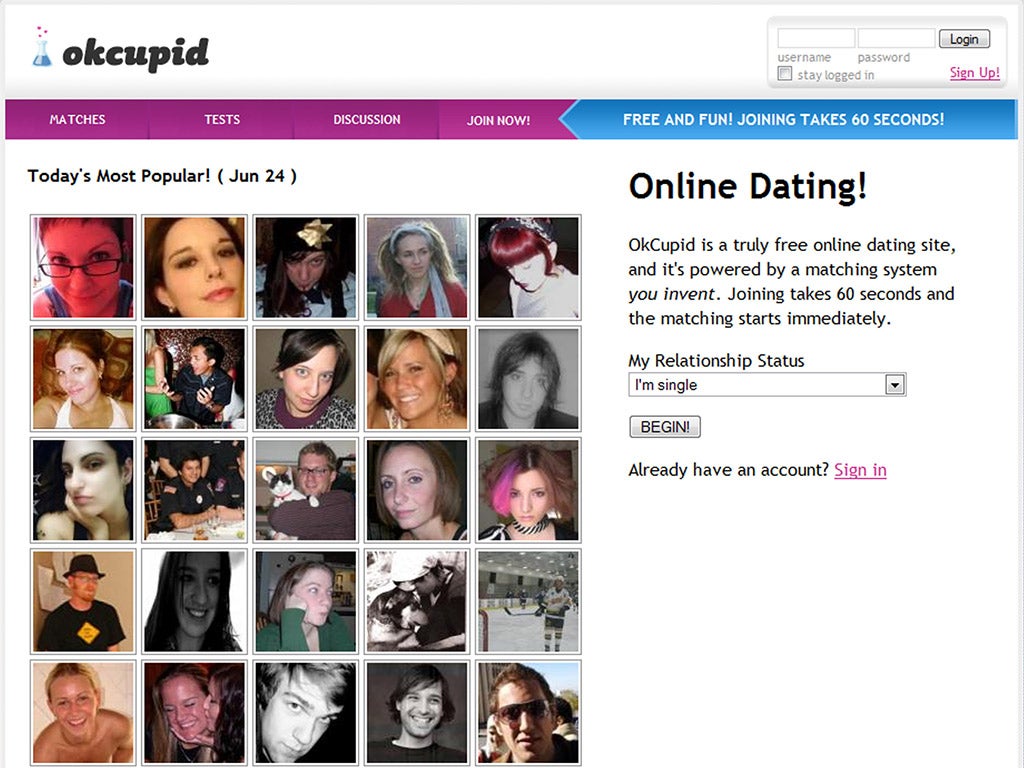Should we accept that we're lab rats if we use social media? OKCupid thinks so

Anyone who has ever dipped their toe into the murky world of internet dating will know that it can be an insufferably shallow environment.
We act mercilessly upon gut instincts in a way that we'd never do in real life; we reject and get rejected because of unsightly spots, an inability to spell or a poor assessment of our mutual compatibility by a third party – in this case the dating site itself. Seasoned users know that it's shallow and new arrivals find out pretty quickly.
This week, the dating site OKCupid confessed to having tested its users for said shallowness by measuring the difference in interaction when photos were hidden, when text was hidden and when the figure for mutual compatibility was artificially manipulated. The results, unsurprisingly, pointed towards an unremitting shallowness, which wouldn't be news had the site not confessed to conducting said test.
It was immediately accused of treating users as lab rats, playing God with their romantic lives, as if that wasn't manifestly obvious already.
Christian Rudder, OKCupid's president, offered a simple defence: "If you use the internet, you're the subject of hundreds of experiments at any given time, on every site." He's right. From the testing of website layouts to the trialling of different forms of content, our emotions and behaviours are constantly pulled this way and that, much of it measurable.
Internet dating itself could be seen as a huge investigation into human attraction, and God knows, OKCupid has published enough fascinating statistics in its history: from the lies people tell about height (we each add 2 inches on average) to the correlation between photographic depth of field and perceived attractiveness (the shallower the better, ironically). But these revelations help us to improve our experience, and OKCupid's most recent study is no exception; it reminds us that the choices we make are often predicated upon inconsequential factors.
That's a valuable lesson that you wouldn't normally hear from an internet dating site that largely reinforces those choices. But no: apparently we're lab rats. A few weeks ago, Facebook came under fire for a similar transgression. A researcher admitted that in January 2012 the service increased the number of negatively themed posts in the timelines of around 700,000 users, to observe the effect on their output. They found a correlation – ie mood is contagious.
I could have told them that based upon purely anecdotal evidence after seeing streams of posts this week about the horrors taking place in Gaza, but Facebook was accused of social engineering without approval. Amid wails of complaint that the service might have made us slightly more downbeat for a short period two years ago, EU regulators started to take an interest. This, in a world where arbitrary decisions about the kind of content we see are being made all the time, by advertisers, film-makers, charities and news outlets, routinely manipulating our emotions to a far greater degree and with far greater effect.
Social interaction on the internet is terrifyingly new. It's a medium that's constantly in flux, shaped by complex algorithms and the even more complex whims of its millions of users. As such, it's guaranteed to play havoc with our emotions, not least because human beings are involved. So in that sense, yes, we could be defined as lab rats, and I'd agree wholeheartedly that participating in a largely rule-free social environment where unusual behaviours collide in externally measurable ways is pretty odd.
But there's one test we can always conduct that's outside the control of Facebook, of Google, of OKCupid: to measure our relative levels of contentment if we simply don't use these services at all. It's one that's worth doing from time to time, you know. Just to get some perspective.
Subscribe to Independent Premium to bookmark this article
Want to bookmark your favourite articles and stories to read or reference later? Start your Independent Premium subscription today.

Join our commenting forum
Join thought-provoking conversations, follow other Independent readers and see their replies